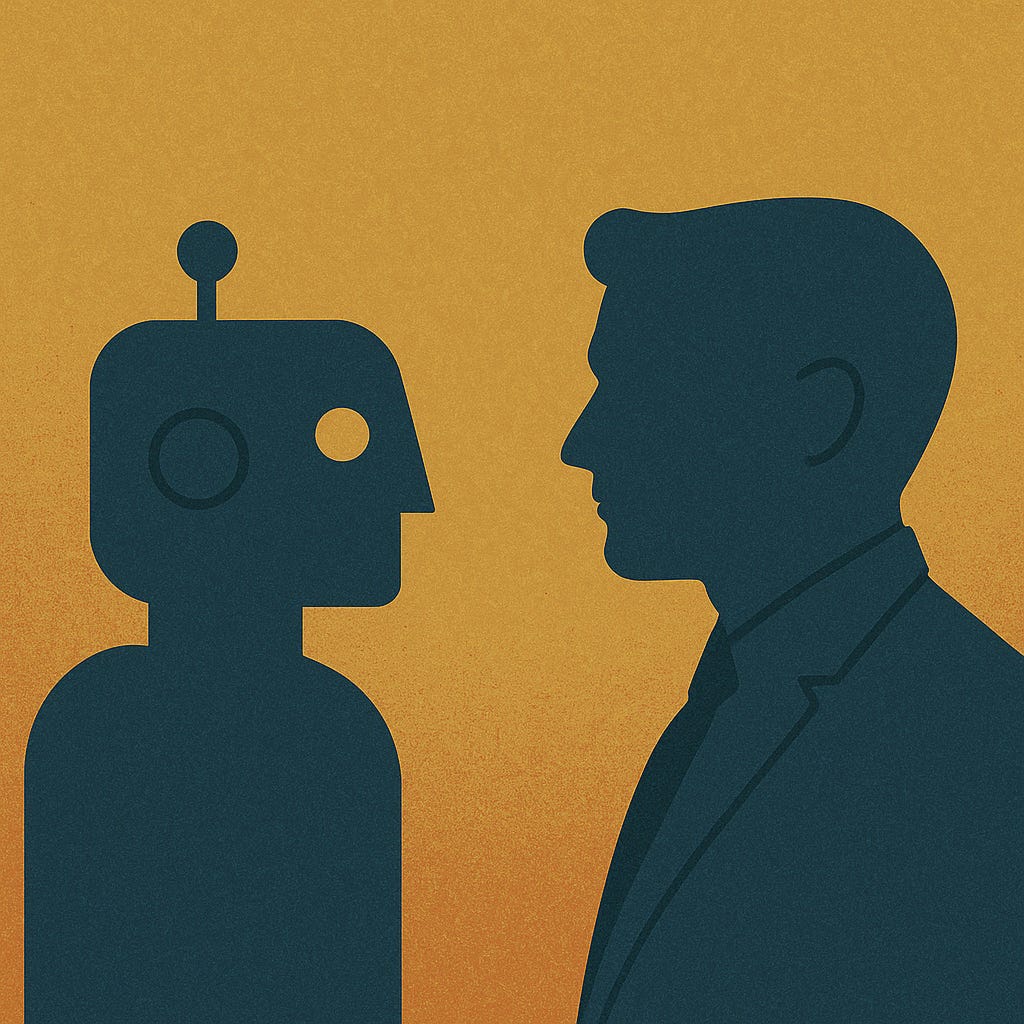AI Isn’t Taking Your Job—But Your Manager Might
Machines Don’t Fire People. People Do.
Everyone’s panicking about AI. Every week there’s a new viral post about ChatGPT replacing coders, designers, writers, you name it. The fear is real—and understandable. But here’s the uncomfortable truth:
Most careers won’t be ended by AI.
They’ll be ended in a Zoom call with a “quick update,” a spreadsheet of names, and a manager saying, “It’s a strategic realignment.”
We’ve been looking in the wrong direction. It’s not artificial intelligence that’s putting your job at risk—it’s human decisions. The ones made behind closed doors. The ones justified by PowerPoint decks. The ones labeled “efficiency gains.”
The Real Threat Is How Leadership Uses AI
AI is just a tool—one with massive potential, yes—but still a tool.
The bigger concern isn’t that AI will become your manager. It’s that your actual manager might use AI as a convenient excuse. A smokescreen for cost-cutting. A shortcut around hard conversations. A way to avoid investing in people.
We've already seen this movie. Entire teams get wiped out under the guise of “automation,” when in reality, it was about trimming budgets or chasing quarterly metrics.
The layoffs didn’t come because machines got smarter. They came because someone in a boardroom decided people were too expensive.
Tech Is Scalable. Empathy Is Not.
You can scale software. You can automate tasks. But you can’t automate trust. You can’t script vision. You can’t replace humane leadership with code.
Good leadership takes effort. Time. Listening. Thoughtful decisions. But those things don’t look great on a balance sheet—at least not in the short term.
So instead, many companies opt for the easy narrative: “AI is reshaping our workforce.” It sounds futuristic. It shifts blame. It avoids responsibility.
But let’s call it what it really is: a decision made by people.
AI didn’t fire you. Someone did.
The Leadership Crisis, Not the AI One
We don’t have an AI problem. We have a leadership problem.
Leaders who aren’t transparent about how they plan to adopt new technologies.
Leaders who treat people as interchangeable parts, rather than the beating heart of innovation.
Leaders who don’t upskill their teams, don’t communicate clearly, and don’t take accountability when things go wrong.
AI can summarize meetings. It can write code. But it can’t coach, mentor, or inspire. That still requires leadership—and in many places, that’s what’s truly missing.
What You Can Do (Even If You're Not a Manager)
Shift your focus from “job security” to “value clarity.”
Make sure your role is clearly connected to business outcomes. Don’t just do the work—understand the why.Invest in human skills, not just hard skills.
Adaptability, emotional intelligence, systems thinking, storytelling—these are hard to replace and even harder to fake.Vet leadership as much as they vet you.
In interviews, ask:
“How does your leadership team think about AI and people development over the next 3 years?”
If they don’t have an answer, take that seriously.Push for transparency.
If you're already in a company that’s adopting AI, ask how it’ll impact roles—not just in terms of layoffs, but in terms of retraining and support. Great leaders won’t shy away from that conversation.
The Takeaway
AI isn’t coming for your job.
But short-sighted leadership might.
The companies that will thrive in the AI era won’t be the ones that replace people with machines. They’ll be the ones that use machines to amplify their people—and have the courage and clarity to lead with empathy, even when it’s hard.
The future isn’t about choosing between humans or machines.
It’s about choosing better humans to lead the way.


